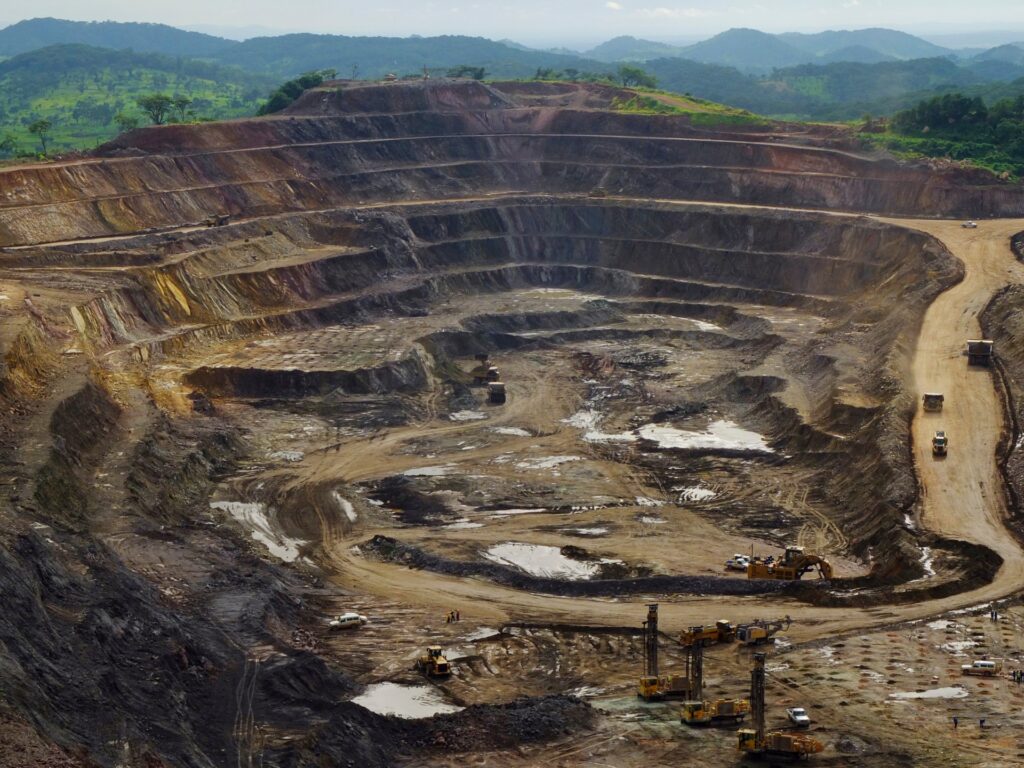President Donald Trump’s administration’s decision sent shockwaves across the development industry with the decision to halt foreign aid and shut down the USAID agency. In 2024, nearly a third of US $41 billion in foreign aid was sent to Africa to support a wide range of sectors, from healthcare to education and hygiene.
But we’re missing out on the bigger picture as aid organizations sound alert and government officials squeeze their hands on a suspended program. Our continent is on top of the world’s largest reserves of future-facilitating minerals, but remains trapped in a cycle of aid dependency. It’s time to change that.
Let’s clarify what is in danger. The Democratic Republic of the Congo supplies 70% of the world’s cobalt. This is an essential ingredient in electric vehicle batteries. South Africa produces 75% of the world’s platinum and 50% of the palladium. Mozambique and Madagascar have some of the largest graphite deposits in the world. Zimbabwe has the largest deposits of cesium and is an important metal used in GPS and 5G systems.
Not just rocks and metals, these are key to global clean energy transitions. All electric vehicles, solar panels, and wind turbines rely on the minerals Africa has abundantly.
But we are still exporting raw materials like colonial vassals, seeking assistance from the same countries that benefit from our resources. Mathematics is mad. They sell raw cobalt for $26-30 (2.2 pounds) per kg, but battery-grade processed materials get $150-200. We provide over 80% of our value chain to foreign processors and manufacturers. This is not just bad business – it’s economic fraud.
The global battery market alone will reach $250 billion by 2030. The renewable energy sector is growing at a fierce speed, growing 26% per year.
Clearly, the wealth of African minerals represents the greatest economic opportunity of our generation. But instead of placing ourselves to capture this value, we are discussing how to patch the holes left by suspended aid programs.
Critics will say they lack the infrastructure, expertise and capital to handle these minerals themselves. They’re right – for now. But this is exactly where we should invest our resources and focus on our political will. The Chinese had understood decades ago, so they poured nearly $58 billion to ensure control of key mineral supply chains across Africa. They saw the future when we were busy filling out our aid applications.
The solution is not complicated, but challenging. You need to build a processing facility, not just an extraction site. We need to establish an economic zone that focuses on the benefits of minerals, rather than just export terminals. They need to invest in research and development facilities that can adapt and improve processing technology. Most importantly, you need to think and act locally.
Imagine the Battery Materials Initiative of the South African Development Community where countries pool resources and expertise to build an integrated value chain. Imagine an East African rare earth element cooperation framework that transforms our mineral wealth into high-tech manufacturing capabilities. These are not pipe dreams – they miss out on the opportunity to continue our business every day as usual.
Environmental critics will say mining is dirty and destructive. They’re not wrong about the risk, but they’re wrong about the solution. The answer is not to keep our minerals on the ground. It is to set a unique high standard for sustainable extraction and processing. You can build mining and processing industries that protect the environment and benefit the community. Because we are to see foreign companies do it in their own way while we deal with the consequences.
The suspension of assistance created human suffering that could not be ignored. HIV treatment programs, education initiatives, and food security projects are all at risk. But if these programs are essential, and many of them are, why should we rely on the political whims of foreign governments to fund them? Our minerals will pay for these programs many times once we acquire their full value.
What we need now is a unity of political courage and purpose. We need leaders who can imagine Africa to go beyond the next election cycle and fund their own developments. We need business leaders who can build processing facilities instead of export terminals. In place of assistance program administrators, there is a need for educational institutions that train chemical engineers and metallurgists.
The current crisis must serve as a catalyst for transformation. All aid dollars suspended should drive us to acquire ten times the value from the minerals, and the diplomatic little should strengthen our resolve to build African solutions. The choice is clear. We can spend the next few decades on aid budget. Or, through the strategic development of mineral wealth, we can ultimately control our fate.
It’s time for Africa to transform from a raw material store around the world into a manufacturing powerhouse. By transforming our mineral wealth into lasting prosperity, we can provide foreign aid that it would have been lined up for a long time: unnecessary.
The views expressed in this article are the authors themselves and do not necessarily reflect Al Jazeera’s editorial stance.

